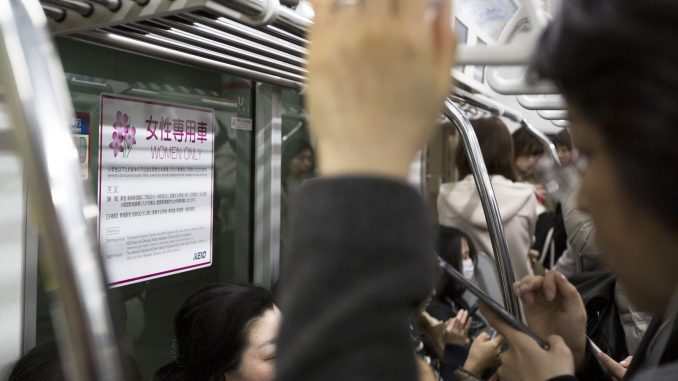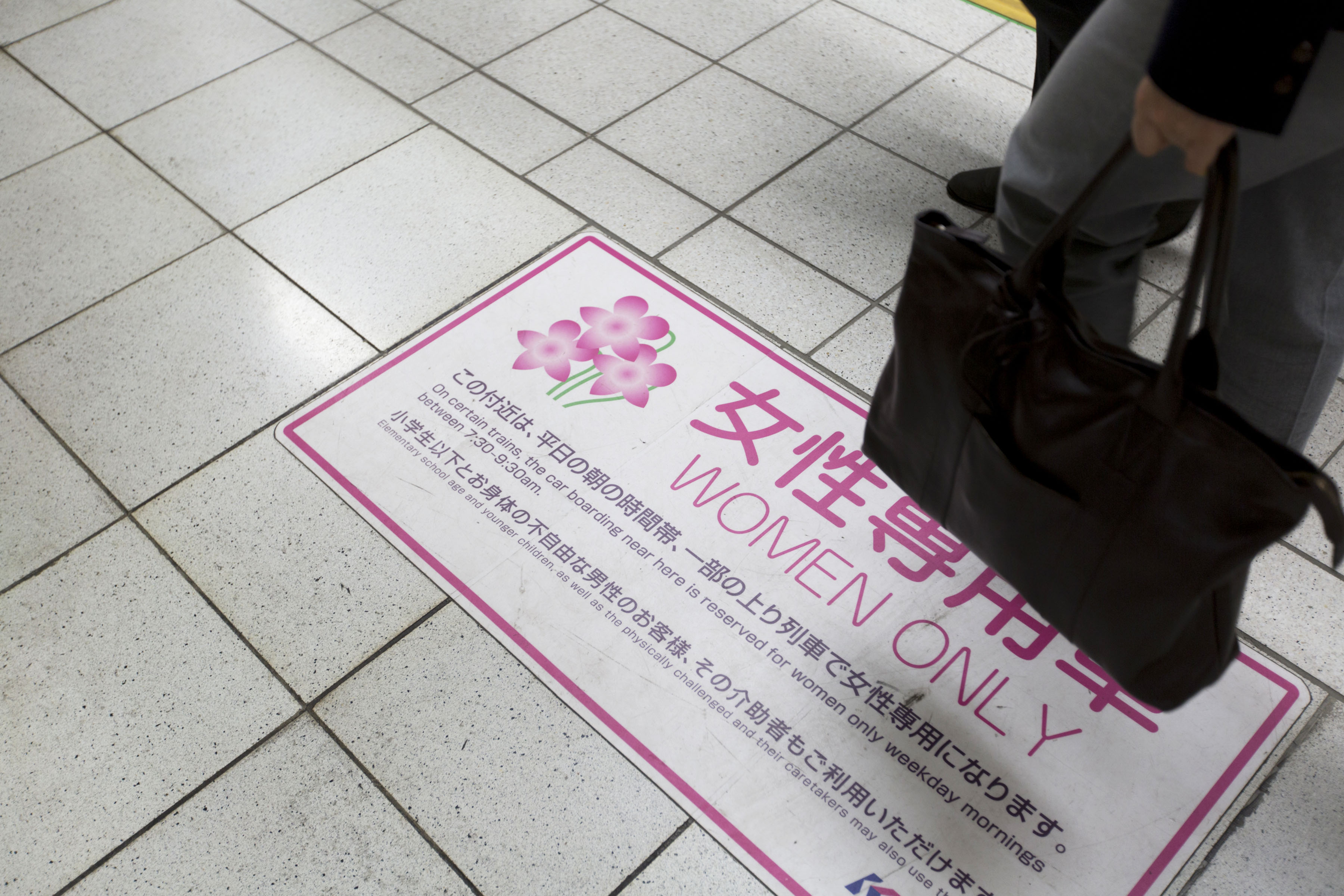
TOKYO — A full-time student at Temple University Japan said she doesn’t have enough fingers to count how many people she knows who have experienced sexual assault at her university.
When the sophomore political science major decided she wanted to report her sexual assault in early May, she first went to the Office of Student Services because she didn’t know where to start.
The Temple News is withholding the student’s name because her investigation is ongoing.
Administrators told her they hadn’t dealt with a sexual assault case at TUJ in several years. They told her they’d consult with other officials at TUJ, like Thomas Dreves, TUJ’s general counsel who serves as a student conduct administrator, and officials from Main Campus. They said they’d get back to her about how to proceed with a case. More than three weeks passed before she received an email from OSS about opening the case.
“Everything they have to do has to go through Main Campus, but also there’s a f—–g ocean in between us,” she said.
TUJ’s campus is located in two office buildings in the Minato District of Tokyo. Both buildings are shared spaces that house other businesses.
Unlike Temple University Rome, which hosts study abroad students for no longer than one academic year, students can study at TUJ for all four years of their undergraduate studies. The university has nearly 1,400 degree-seeking students in total. TUJ also hosts about 60 to 100 study abroad students from Main Campus or other universities each semester.
TUJ, though, has no sexual assault resources of its own, and the TUJ student handbook does not mention sexual assault. If TUJ students want to move forward with reporting their assault, they are referred to Andrea Seiss, Temple’s Title IX Coordinator. This means they have to deal with the added inconvenience of a 14-hour time difference.
Seiss did not respond to individual requests for comment from The Temple News.
In Japan, it’s common to gloss over the issue of sexual assault. Although the country has taken steps to reduce sexual assault, like implementing women-only train cars to prevent groping, Japan’s sexual assault law has not changed since 1907.
Earlier this year, a new bill was proposed that would broaden the penal code’s definition of rape, which is currently limited to vaginal penetration by a penis, to include forced anal and oral sex. The amendment would also increase punishments for sexual assault and make it easier for survivors to report cases.
Temple’s most recent Annual Security and Fire Safety Report lists zero cases of sexual misconduct or relationship violence at TUJ. This figure reflects the stark national issue of underreporting in Japan.

According to a 2014 report by Japan’s Ministry of Justice, an estimated 13.3 percent of sexual assault survivors report the crimes to police.
In “The Sex Crimes and Child Abuse Investigation Handbook,” a Japanese female prosecutor Kazuko Tanaka estimates that only 4 percent of sexual assault survivors file with the police. A survey conducted by Japan’s Cabinet Office found that common reasons survivors may not report sexual assault include vague sexual assault laws, shame and the fact that many sexual assaults are perpetrated by people survivors know, so reporting them could disturb the “wa,” or harmony — an important part of Japanese culture.
After the student approached TUJ with her case, Dreves collected evidence from her, but then passed the case on to Main Campus. The Office of Student Conduct & Community Standards on Main Campus is investigating the case.
The student has had to deal with having no in-person with the staff. She has relied on phone calls and emails to communicate about her assault.
“You lose a lot over Skype and phone calls,” she said. “It’s really difficult because it’s like, first of all, I don’t think [Main Campus staff members] realize how small the TUJ campus is. I walk around the corner and the amount of times I have literally almost bumped into my rapist. … I don’t think they realize how often I see him.”
“There are days when I can’t come to school because it’s too difficult, because I know I’m going to see him at some point,” she added. “I know which floors he’s on and I don’t go on those floors, but that basically limits me to using literally two floors in this building.”
TUJ does have a counseling center available for students, but it mainly advertises services tailored to an international campus, like support for dealing with culture shock. The center’s website currently does not feature resources for students who experience sexual assault. It only explains the definition of sexual assault and harassment.
Aki Imai, a counselor at the center, said the staff is working on a new section for the site about the steps students can take if they’re assaulted.
Unlike Main Campus, which offers Student Health Services, TUJ has no on-campus health center for students, meaning they have to find their own medical services when they are sick, or following an assault.
Student Health Services on Main Campus cannot conduct sexual assault forensic exams on campus, but they can assist with referrals to the Philadelphia Sexual Assault Response Center.
On Main Campus, Women Organized Against Rape, a Philadelphia-based sexual violence crisis center, operates a 24-hour satellite office to provide support for survivors of sexual assault. WOAR representatives can help arrange transportation and accompany survivors to seek medical services. TUJ students are not referred to WOAR.
When The Temple News asked to speak with TUJ representatives about the issue of sexual assault on campus, TUJ and Main Campus officials responded with a joint statement in which they note that the area around TUJ’s campus is “substantially safer” than Main Campus.
“Our incidence of violence between students or affecting students is likewise much lower,” the statement reads.
Dreves added in an email that he understands that sexual assault is “a prominent issue at the Main Campus.”
TUJ representatives suggested students access the Counseling Office for strict confidentiality. They also recommend that students who are assaulted preserve evidence by visiting outside medical professionals and the police.
TUJ notifies Seiss of sexual misconduct allegations. If these cases require adjudication under the Student Conduct Code, TUJ goes through the Main Campus Student Conduct Code process, which is facilitated by Seiss.
Currently, there are no plans to change procedures and resources regarding sexual misconduct at TUJ.
Tired of the silence surrounding the topic of sexual assault at TUJ and around Tokyo, the student and five of her friends started an online zine, or small, self-published magazine, about sexual assault and gender issues. UPRI-ZINE is part of the official TUJ Zine Club.
“TUJ has a sexual harassment and assault problem,” she said. “It was just this loop of stories and nothing was changing. We can’t wait for the school to start doing things, so if they’re not going to do things, we’re just going to do it ourselves.”
The student said although she feels like TUJ staff members have had “the best intentions” while dealing with her case, she is disappointed that TUJ doesn’t have its own resources. She said the time difference, physical distance and cultural barriers are reasons TUJ should handle sexual assault on its own.
“They’re supposed to be autonomous of Temple Main, but they’re not because they go through everything with them and they can’t handle issues like that,” she said. “TUJ should be able to do so much more than they can right now.”


Be the first to comment